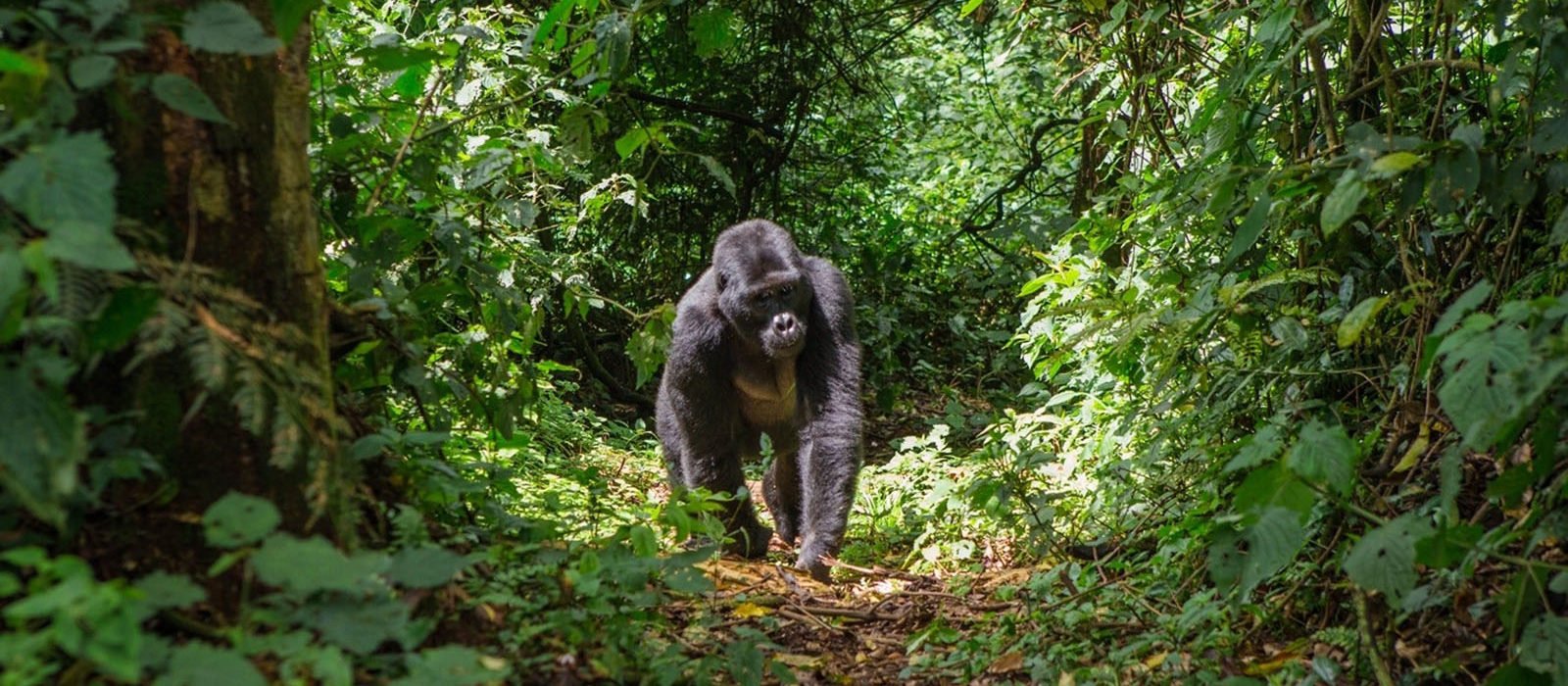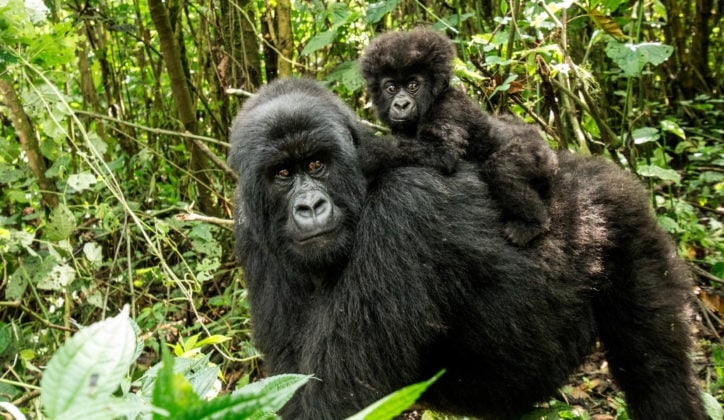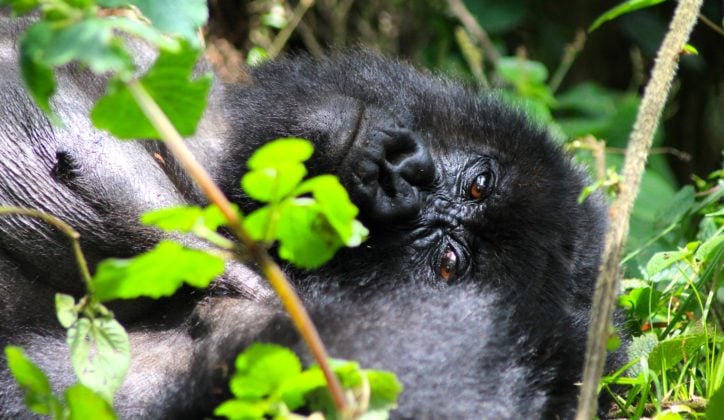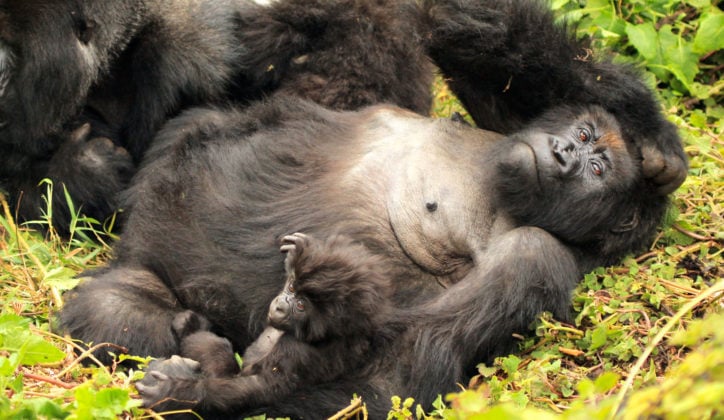Published on: September 27th, 2018
Last modified: March 20th, 2024
Rwanda and Uganda are the best countries for mountain gorilla trekking, both with great safari options. Rwanda limits permits to Volcanoes National Park for a conservation focused experience. Uganda’s Bwindi Impenetrable Forest has four habituated gorilla troops but can be a harder trekking option.
With only 800 majestic mountain gorillas still left in the wild, having the opportunity to see them in their natural habitat is unfortunately very rare. On the flip side though, this is what makes the experience all the more special.
Often the question on every traveller's mind is which one of these East African countries should you visit for the ultimate gorilla trekking experience.To help you choose between the two, we've pitted Uganda and Rwanda against each other to answer the ultimate question; Gorilla Trekking: Uganda or Rwanda?
Ease of trek
Uganda
Often overlooked by travellers, Uganda was once rightly described by Winston Churchill as the ‘Pearl of Africa.’ Lush jungle and tropical wildlife are primary features of Uganda’s Bwindi Impenetrable Forest, home to the highest concentration of primates on Earth. Around 10 habituated gorilla families can be found in Bwindi National Park, with each group limited to a maximum of 8 visitors per day. The gorillas are constantly on the move, so it is hard to narrow down just one area in which to track them. As a result, the total time you spend gorilla trekking can be anything from half an hour to nine hours.
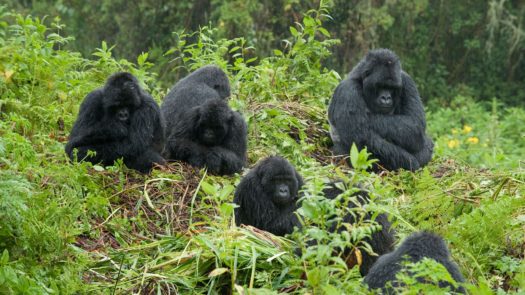
Uganda is more suited to adventurous types, as Bwindi’s terrain is such that you start your trek on high ground before descending into the valley to see the gorillas, ending with an arduous climb at the end of the day. Slopes can often be steep and there are no trails, giving Bwindi National Park its impenetrable reputation. Weather is also unpredictable, even during the dry season, so rain can make conditions slippery.
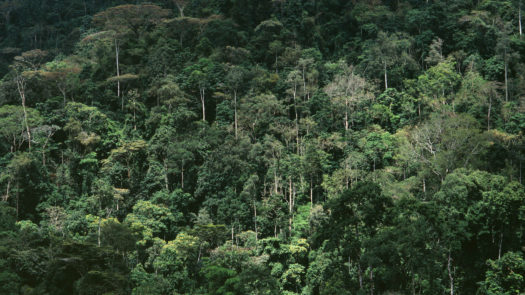
Tackling challenging conditions is often worth it, though, as Bwindi National Park is home to an incredible 79 mammal species, 160 species of trees and 100 species of ferns. Opportunities to spot giant forest hog, elephants and several small cat varieties whilst gorilla trekking will no doubt make your visit worthwhile.
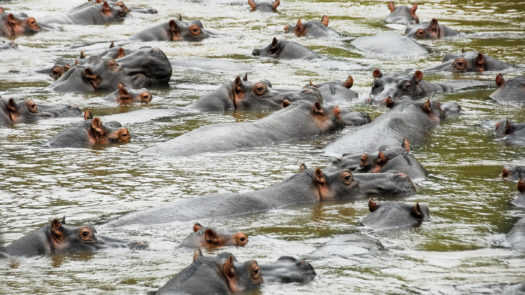
Mgahinga National Park is another option for gorilla trekking in Uganda, although the park’s small size means the gorilla family residing here is slightly more elusive. Mgahinga spreads across three inactive volcanoes – Sabyinyo, Gahinga and Muhabura – making its 34 square kilometre landscape incredibly dramatic. Because it can be slightly more difficult to find the gorilla family at Mgahinga, it’s great to spend your time here doing a few other things as well, such as hiking one of the three volcanoes or connecting with the indigenous Batwa tribe.
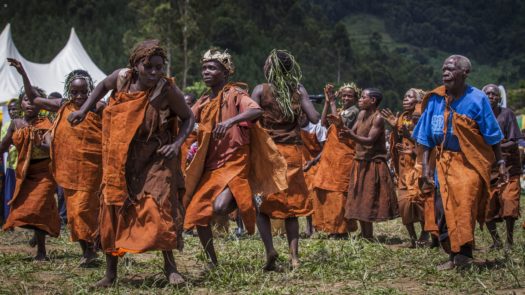
Rwanda
A staggeringly beautiful central African country, Rwanda’s rolling green savannas and tropical rainforests provide the perfect backdrop for gorilla trekking. Volcanoes National Park is Rwanda’s preferred destination for gorilla sightings, with the region’s gentle slopes and open bush catering to all types of traveller. Volcanoes National Park was given its name by virtue of the fact that it’s home to five of the eight volcanoes in the Virunga mountains massif. Combined with blanketed rainforest, open grassland and small lakes, the landscapes across Volcanoes National Park are worth visiting in and of themselves.
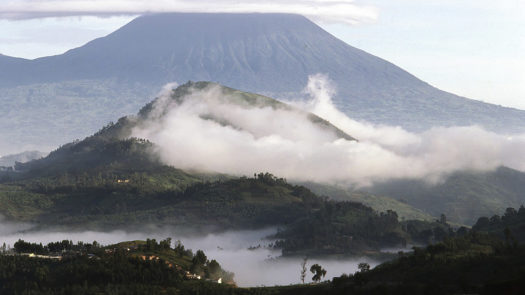
Rwanda is similar to Uganda in that a maximum of eight tracking permits per gorilla family per day are allowed in the park, so the forest is seldom too crowded. With 10 habituated gorilla groups also in Volcanoes National Park, the time it takes to locate them is similar to that taken in Uganda’s Bwindi. However, Rwanda’s open environment lends itself to less arduous treks, making it more accessible than Uganda’s challenging terrain.
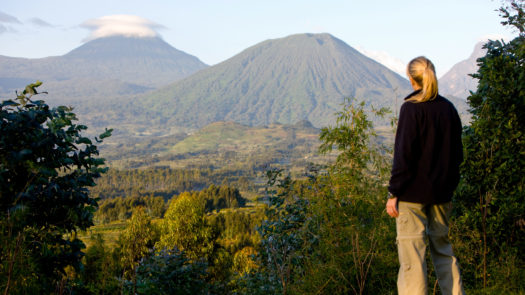
Where should I stay?
Where should I stay in Uganda?
Situated on a ridge top in the heart of Bwindi, Clouds Mountain Gorilla Lodge offers sweeping views over the forested Virunga mountains. The property’s special feature is the terrace, as you’re able to enjoy dinner with a backdrop of Mount Nyiragongo’s glowing lava lake. As well as gorilla trekking, you can go on a guided walk through the local village, during which you’ll visit various projects, including a school which the lodge supports.
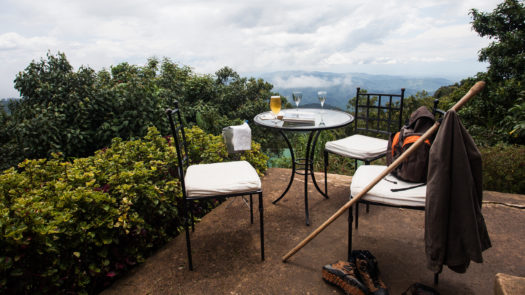
Riverfront Mahogany Springs combines exceptional service with a wonderful location. Highlights include fresh produce grown on site, panoramic views from private balconies and open terracotta showers. For a more secluded feel, the presidential suite features two bedrooms and two bathrooms, complete with a spacious living room and private terrace.
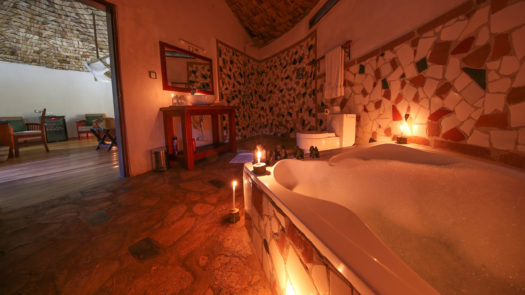
For more of a simple but explorer-chic atmosphere, head to Sanctuary Gorilla Forest Camp. This camp feels very communal, with an outdoor campfire area set up for fellow guests to come together and swap stories. The activities are a true highlight here, with the unique opportunity to meet the local Batwa tribe on a guided community walk on offer.
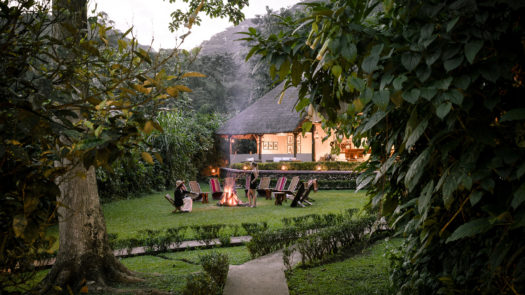
With an impressive view of three inactive volcanoes, Mount Gahinga Lodge is ideally placed in a prime location in the heart of Mgahinga National Park. Six stone and thatch bandas feature fireplaces and solar heated showers, giving it a cosy, authentic feel. Volcanoes National Park was given its name by virtue of the fact that it’s home to five of the eight volcanoes in the Virunga mountains massif. Combined with blanketed rainforest, open grassland and small lakes, the landscapes across Volcanoes National Park are worth visiting in and of themselves.
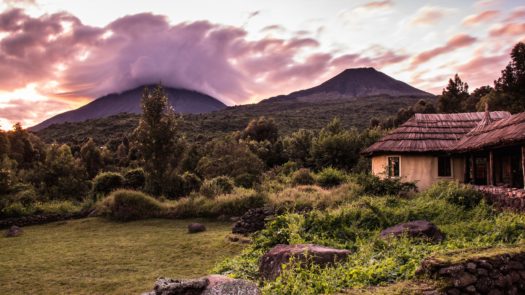
Where should I stay in Rwanda?
Set amongst an eroded volcanic cone, Bisate Lodge’s six forest villas provide panoramic views across rolling hills and guided village walks amongst the local community. Bisate’s villas provide an out of this world feel, with each room’s private deck facing the ethereal Mount Bisoke. As well as sought after gorilla treks, Bisate runs forest hikes to see rare Golden Monkeys and other wildlife.
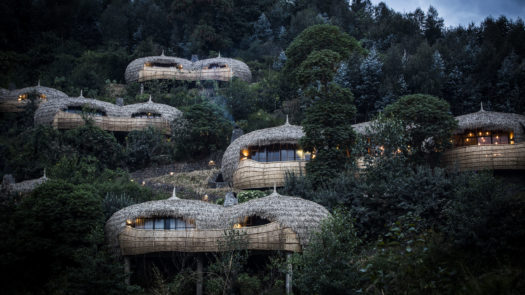
Sitting atop a 2,300 metre hilltop overlooking lakes Ruhondo and Balera, Virunga Lodge is one of central Africa’s premier eco-lodges. Virunga is an environmentally conscious property, with en suite bathrooms running on solar hot water. Local cultural excursions and an extensive menu of diverse daily activities make Virunga Lodge a stylish retreat.
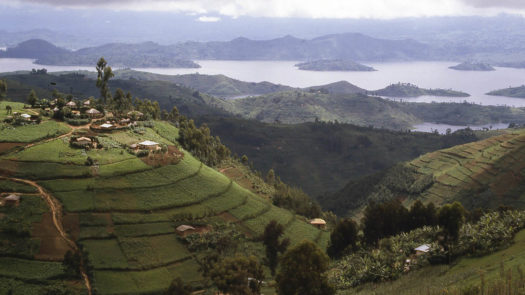
In the foothills of the Virunga mountains lies Sabyinyo Silverback Lodge, whose eight spacious standalone cottages are decorated in a homely fashion. Sabyinyo is a great choice for honeymooners, as its secluded location creates a private feel. There are also opportunities to connect with your fellow travellers, as guests are able to collectively recount tales in the communal lounges and dining area.

When should I visit?
Uganda
As Uganda straddles the equator and has an average altitude of around 1,000m, the heat is rarely too intense, meaning you can visit year-round. However, the best time for gorilla trekking is between July and September. During this time it’s peak season, so make sure you organise your permit well in advance. Only a limited number of visitors are permitted on each trek, so the forest is never too crowded.
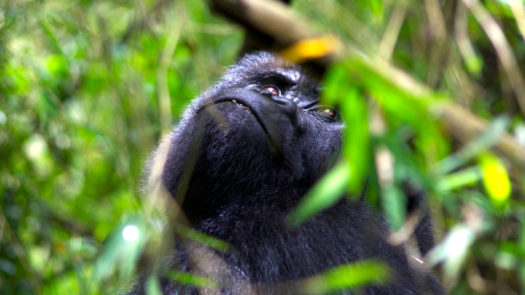
Rwanda
The weather is variable in Rwanda, as the country has two dry seasons and two wet seasons. The dry seasons – running between mid-December to early February and from June to September – are ideal for gorilla trekking, since the forest terrain is not as treacherous as it tends to be during the wetter months. Drier temperatures also mean a low risk of contracting malaria. However, because Rwanda is equatorial, the weather is never predictable, so it’s wise to pack waterproofs year round.
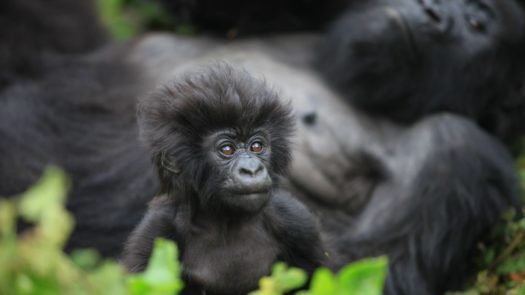
Which is the more sustainable option?
Uganda
Gorilla trekking in Uganda is well-known for being a sustainable operation. By spending two days hiking and tracking gorillas in the deep forest, you’ll be able to learn about the inspirational work of the Bwindi team and hear about how your travel to this region directly benefits an at-risk ecosystem. Gorilla-based tourism benefits the local community too, with private guides such as Asgario able to make a living from leading treks across the country.
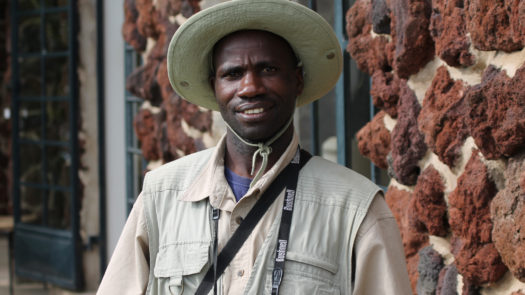
Rwanda
In Rwanda, conservation is still a primary feature. All guided treks are led by expert naturalist guides, with every effort made to minimise impact on the gorillas’ natural habitat. Volcanoes National Park was put firmly on the map by American primatologist Dian Fossey, who founded a centre to bring worldwide attention to the gorillas’ endangered status.
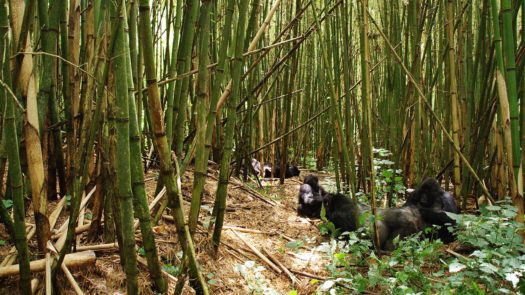
Our Team's Favourite Gorilla Trekking Trips to Uganda and Rwanda
Feeling inspired? Talk to one of our expert travel designers today to start planning your gorilla trekking adventure.
